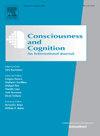他人行为的感知自愿性是否会诱发代理感?来自人机交互的证据
IF 2
3区 心理学
Q2 PSYCHOLOGY, EXPERIMENTAL
引用次数: 0
摘要
代理感(SoA)是对自己行为和结果的控制感。人们可以体验面向其他代理的“替代”SoA,这些代理可以是其他人,也可以是人工代理(如机器人)。一种常用的隐式SoA度量方法是有意绑定(Intentional Binding, IB)效应,相对于非自愿的操作,当该操作是自愿的时,其效果更强。然而,对于替代SoA是否也是如此还不清楚。因此,在三个实验中,参与者单独和另一个代理一起执行IB任务,即与另一个人(实验1)或与仿人机器人iCub(实验2和3)。共同代理的行为被呈现为自愿或非自愿-由机械装置触发。参与者报告了自我行为发生的时间,以及他人的人类行为(实验1)、机器人行为(实验2)或机器人结果(实验3)。实验1表明,自我和替代行为只有在行为是自愿的情况下才会发生。在实验2中,自我行为的IB只在自愿的情况下才会发生,而iCub行为的替代IB无论行为是“自愿的”还是“非自愿的”都会发生。实验3表明,IB超过音调的结果发生在自生成和机器人动作中。我们的研究结果表明,只有在预测过程发挥作用的情况下,行动的自愿性才会在IB影响(以及SoA的延伸)的出现中发挥作用。他们还指出,机器人的替代IB是基于后置过程,这一点,感知到的机器人行为的自愿性并不能调节机器人的替代IB效应。本文章由计算机程序翻译,如有差异,请以英文原文为准。
Does perceived voluntariness of others’ actions induce vicarious sense of agency? Evidence from human-robot interaction
Sense of Agency (SoA) is the feeling of control over one’s actions and outcomes. People can experience “vicarious” SoA towards other agents, either other humans or artificial agents such as robots. A commonly used measure of implicit SoA is the Intentional Binding (IB) effect, which is stronger when the action is voluntary, relative to involuntary. However, it remains unclear whether this is true also for vicarious SoA. Thus, in three experiments, participants performed an IB task alone and with another agent, namely with another human (Experiment 1) or with the humanoid robot iCub (Experiments 2 and 3). The co-agents’ actions were presented as voluntary or involuntary- triggered by a mechanical device. Participants reported the time of occurrence of self-generated actions, as well as the other’s human actions (Experiment 1), the robot actions (Experiment 2) or robot outcomes (Experiment 3). Experiment 1 showed that both self- and vicarious IB occurred only when the actions were voluntary. In Experiment 2, IB for self-actions occurred only when voluntary, but vicarious IB over iCub’s actions occurred irrespective of whether the action was presented as “voluntary” or “involuntary”. Experiment 3 showed that IB over tone outcomes occurred for self-generated and robot actions. Our findings suggest that voluntariness of actions plays a role in the emergence of the IB affect (and, by extension, of SoA) only if predictive processes are at play. They also indicate that vicarious IB for robots is based on postdictive processes, and this, perceived voluntariness of the robot actions does not modulate the vicarious IB effect for robots.
求助全文
通过发布文献求助,成功后即可免费获取论文全文。
去求助
来源期刊

Consciousness and Cognition
PSYCHOLOGY, EXPERIMENTAL-
CiteScore
4.30
自引率
8.30%
发文量
123
期刊介绍:
Consciousness and Cognition: An International Journal provides a forum for a natural-science approach to the issues of consciousness, voluntary control, and self. The journal features empirical research (in the form of regular articles and short reports) and theoretical articles. Integrative theoretical and critical literature reviews, and tutorial reviews are also published. The journal aims to be both scientifically rigorous and open to novel contributions.
 求助内容:
求助内容: 应助结果提醒方式:
应助结果提醒方式:


